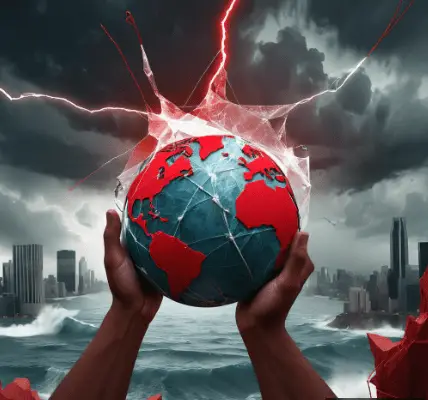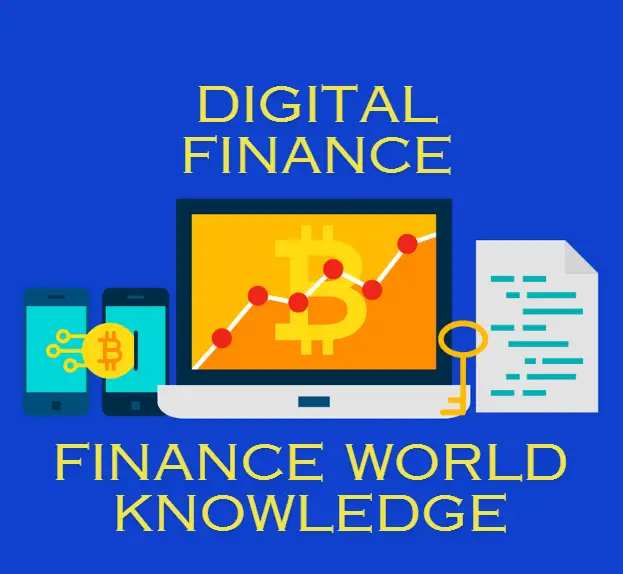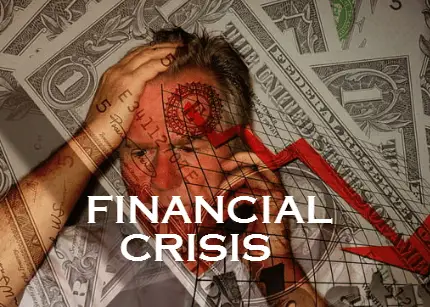A World on Edge: Geopolitical Tensions and the Fragile Global Economy.The global economy, still convalescing from the profound impacts of the pandemic, finds itself grappling with a fresh wave of uncertainty – geopolitical tensions. The ongoing conflict in Ukraine, alongside simmering disputes in other regions and escalating nationalism, casts a pervasive shadow over financial markets and economic stability. Understanding the intricate dynamics at play is paramount for effectively navigating the complexities and seizing opportunities on the horizon.

The Ukraine Conflict: A Disruptive Force and Geopolitical Tensions
Russia’s incursion into Ukraine reverberated globally, triggering disruptions across the economic landscape. Sanctions levied against Russia disrupted supply chains, precipitated surges in energy prices, and instilled apprehensions of broader geopolitical turmoil. The International Monetary Fund (IMF) revised down its global growth projections for 2023, underscoring the disruptive ramifications of the conflict.
Beyond Ukraine: A Complex Geopolitical Mosaic
The conflict in Ukraine represents merely a fragment of a larger geopolitical puzzle. Escalating tensions between major powers, such as the US and China, alongside enduring disputes in regions like the Middle East and Asia, coupled with the ascent of nationalism worldwide, collectively contribute to an environment fraught with uncertainty. This multipolar geopolitical landscape engenders unease among businesses and investors, impeding investment flows and economic vitality.
The Cascading Impact on global economy: From Commodities to Currencies
The economic reverberations of geopolitical tensions are manifold, permeating various sectors:
Energy Turmoil: The Ukrainian conflict exacerbates an already volatile energy market. Sanctions on Russia, a significant energy exporter, precipitate price spikes, affecting everything from transportation costs to household energy bills.
Food Insecurity: Ukraine’s status as a vital exporter of wheat and other agricultural commodities renders the global food supply vulnerable. Disruptions stemming from the conflict elevate concerns about food security, potentially triggering price escalations and shortages in susceptible regions.
Supply Chain Strain: Geopolitical tensions engender trade barriers and logistical bottlenecks, impeding the seamless flow of goods and services across borders. Such disruptions culminate in material shortages and heightened production expenses for enterprises.
Financial Market Fluctuations: Heightened uncertainty surrounding geopolitical events fosters increased volatility in stock markets and currency valuations. Investors may adopt risk-averse stances, divesting from investments and exacerbating market gyrations.
Charting a Course Through Uncertainty: Strategies for Stakeholders in times of global tension
In the face of prevailing uncertainty, both businesses and individuals can adopt proactive measures to mitigate risks:
Businesses: Foster supply chain diversification, fortify operational resilience, and remain vigilant to potential disruptions. Explore alternative sourcing avenues and employ hedging mechanisms to navigate commodity price fluctuations effectively.
Individuals: Maintain vigilance over personal finances, prioritize essential expenditures, and cultivate emergency funds to withstand potential economic downturns. Consider diversifying investment portfolios to mitigate exposure to regional or asset-specific risks.
Advocating International Collaboration boon under Geopolitical Tensions
Efforts to ameliorate the economic fallout of geopolitical tensions necessitate concerted international cooperation. Emphasizing open dialogue, diplomatic conflict resolution, and the promotion of a rules-based global order are imperative for fostering economic stability and prosperity. Institutions like the IMF and the World Bank play pivotal roles in providing financial aid and fostering economic collaboration.
Looking Ahead: Cultivating Resilience
Despite facing a landscape rife with complexity and challenges, opportunities for resilience and growth abound:
The long-term implications of geopolitical tensions on the global economy remain uncertain, contingent upon the evolution of ongoing conflicts.
Technological innovation presents avenues to mitigate supply chain disruptions and promote economic diversification.
Investment in renewable energy sources offers a pathway to reduce reliance on volatile fossil fuels and bolster energy security.
By remaining informed, adapting to evolving circumstances, and championing collaborative endeavors for global peace and prosperity, stakeholders can navigate the tribulations posed by geopolitical tensions and pave the way toward a more sustainable and prosperous future for all.
Additional Reflections:
Forecasting the enduring impact of geopolitical tensions on the global economy remains an intricate endeavor, shaped by the evolution of geopolitical dynamics.
Advancements in technology and innovation hold promise for mitigating the disruptions wrought by supply chain challenges and fostering economic resilience.
Embracing renewable energy initiatives emerges as a critical strategy for reducing vulnerability to volatile fossil fuel markets and enhancing energy sustainability.
Together, through informed decision-making and concerted efforts toward global cooperation, we can surmount the hurdles presented by geopolitical uncertainties and usher in a future defined by resilience and prosperity for all.







Leave a Reply